The college years are about so much more than study; they represent a microcosm of the world young adults will enter. They also test students in ways they’re not always prepared for—academically, socially, mentally and spiritually. And that’s where Chabad on Campus comes in.
Rabbis, their wives and families offer a warm environment where students can unwind and feel at home at Chabad on Campus centers serving more than 400 universities worldwide. While they provide an array of Jewish programming, events, classes and kosher meals for students, they also help provide an emotional support system. Chabad emissaries become advisors, mentors and, of course, represent a parental ear while students are away from home.
To that end, an in-depth, six-hour seminar titled “Mental Health First Aid” was offered to a pilot group of 60 Chabad-Lubavitch campus emissaries—30 men and 30 women—to provide them with the skills to help someone who is developing a mental-health problem or experiencing a mental-health crisis.
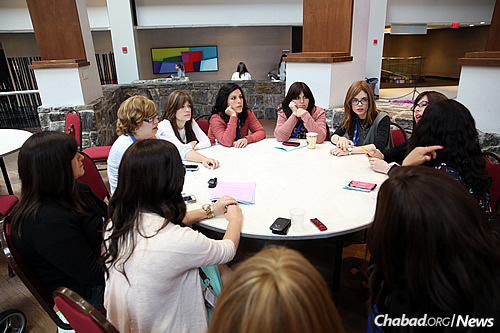
“Being armed with this knowledge is truly empowering,” said Nechama Haskelevich, director of student programing at Lubavitch House at the University of Pennsylvania. Her husband, Rabbi Levi Haskelevich, serves as campus rabbi there. “The more information that I’m armed with, the better equipped I am to help people. Often students come to us for help because they’re not comfortable speaking with parents, friends or professionals.”
The suicide rate at UPenn has spiked in recent years, as has been widely reported. Though the Ivy League university is cognizant of the problem, the intense academic environment has been called a “breeding ground” for mental-health problems, most commonly expressed in anxiety and depression.
The training seminar was one part of the annual Chabad on Campus International Conference, which took place two weeks ago in Stamford, Conn. Presenters there also included social worker Gitty Bronstein and therapist Dr. Pinchas Herman for personal and family counseling; Dr. Naomi Greenblatt for a session on women’s emotional health; and Rabbi Yitzchak Wolowik for life coaching.
“I expect that now I will be better prepared to respond to students who are going through mental-health issues and know where to refer them to,” said Chana Rochel Novack, director of operations of the Rohr Center for Jewish Life at Washington University in St. Louis.
When Novack’s husband, Chabad center director Rabbi Hershey Novack, took the mental-health training course in St. Louis this year, he suggested it to the Chabad on Campus office as a beneficial program for this year’s convention.
“There’s a tremendous stress and pressure from academic and extracurricular responsibilities just to get through each semester,” explained Chana Rochel Novack. “The intensity changes at various points in time. We often help students navigate the pressures that affect them, especially when these pressures are so new to them upon arriving on campus.
“In our role as clergy, mentors and advisors, we become a part of students’ support system,” said Novack.
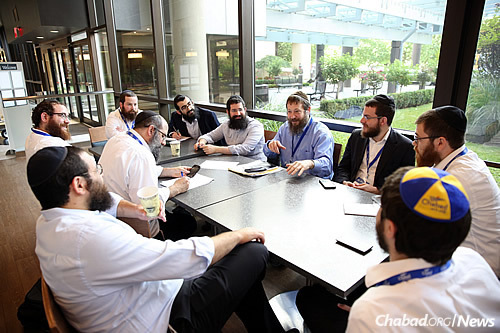
A Five-Step Strategy
Just as CPR training helps someone without medical background to assist an individual following a heart attack, the “Mental Health First Aid” training helps someone assist a person experiencing all kinds of emotional and psychological crises. The national program’s goal is to give attendees the ability to assist and support an individual until appropriate professional help arrives; the training is not medical, though participants walk away with nationally recognized certification from the National Council of Behavioral Health.
The program employs a five-step strategy, using the acronym ALGEE to aid in remembering the following points: 1. Assess risk for suicide or harm; 2. Listen non-judgmentally; 3. Give reassurance and information; 4. Encourage appropriate professional help; and 5. Encourage self-help and other support strategies.
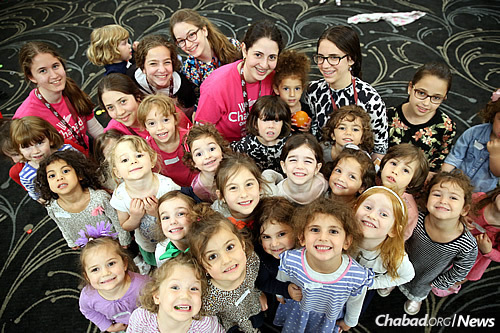
The instructor, Sara Kate Venison from Stamford, introduced emissaries to risk factors and warning signs for mental-health or substance-use problems. The group also participated in experiential activities to build understanding of the impact of illness on individuals and families, and learned about evidence-supported treatment and self-help strategies.
For Moussia Goldstein—co-director of Chabad serving Drexel University-Rohr Jewish Student Center with her husband, Rabbi Chaim Goldstein—one of the most practical areas of advice was surrounding those at risk for suicide. She learned the importance of asking such individuals the difficult and specific questions about their situation, which can literally save lives.
“I took the course because so much of what we do is counsel people,” said Goldstein. “The seminar will empower me to help people in ways that I couldn’t have before because I didn’t have the proper training. Now we will truly be able to help students that we care about in a much bigger capacity.”

‘In Their Best Interests’
Veteran campus emissary Yocheved Rivkah Adelman—co-director of Chabad House at Amherst in Massachusetts with her husband, Rabbi Chaim Adelman—has seen the face of student life change in her 25 years on campus, warranting greater focus on mental and emotional health.
“We are definitely seeing more anxiety and depression among our contemporary student body, in addition to seeing more instances of eating disorders. With the current climate of dieting and exercise for health reasons, it can be difficult to distinguish between appropriate and unhealthy attitudes towards eating,” she said. “The seminar was very helpful in that it gave us information and tools to recognize when a student may have a degree of anxiety or depression that needs more help than a lay person can provide.
“By normalizing and removing the stigma attached to mental-health challenges, we are able to direct students to professionals who can support their recovery in the same way we would for challenges with physical health issues.”

This year’s conference brought together more than 400 Chabad on Campus emissaries, and 600 of their children, for a four-day symposium from June 27 to June 30. Discussions focused on how best to serve Jewish students at universities in North America and around the world, and worked to shape the upcoming year of Chabad on Campus activity. It was packed with nonstop seminars, lectures, workshops and networking opportunities meant to inform and inspire.
The global expansion of Chabad on Campus was highlighted with the participation of representatives from the United States, Canada, Argentina, Australia, South Africa, Russia, China, the United Kingdom, Israel, Italy, the Netherlands and Germany. Currently, there are more than 230 Chabad on Campus centers worldwide.
The international component was emphasized in remarks by Rabbi Moshe Kotlarsky, vice chairman of Merkos L’Inyonei Chinuch, the educational arm of the Chabad-Lubavitch movement, and chairman of Chabad on Campus International; Chief Rabbi of Russia Berel Lazar; and George Rohr, chairman of the Chabad on Campus International Advisory Board.
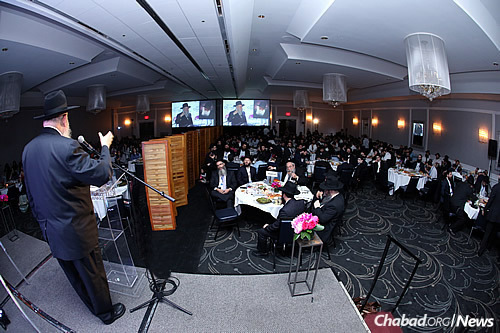
Rabbi Yossy Gordon, executive vice president of Chabad on Campus International, emphasized that the mental-health training aligns with the organization’s overall mission.
“Our emissaries are being turned to more and more for guidance in this area of mental health, and we want to ensure, as we do in everything, the highest level of excellence,” he said. “We want to be of service to the students who come to us—to do what is in their best interests and to help them succeed in school.”

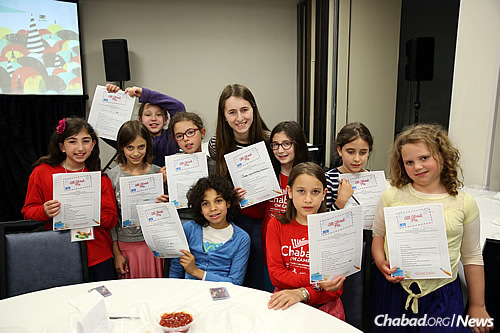








Start a Discussion